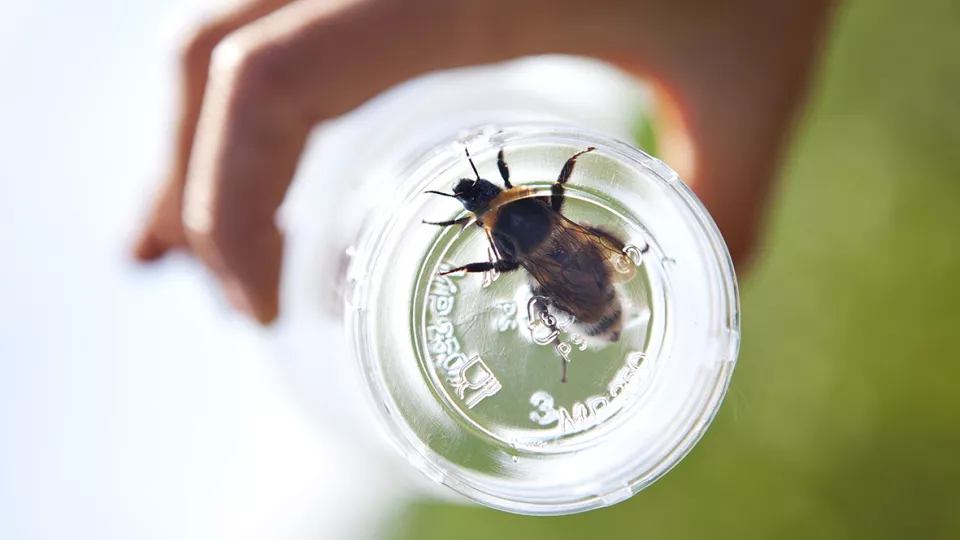The large-scale, long-term decline in wild bees across England has been linked to the use of neonicotinoid insecticides by a new study conducted by Centre for Ecology and Hydrology, UK.
Over 18 years, researchers analysed bees who forage heavily on oilseed rape, a crop widely treated with "neonics". The scientists attribute half of the total decline in wild bees to the use of these chemicals.
Interview with Henrik Smith, BECC
Henrik Smith, BECC coordinator, is interviewed for BBC News about the new study and comments: "This is the first good evidence that bees are affected at the population level by the widespread use of neonicotinoids,".
Henrik Smith was one of the co-authors of the study from 2015, published in Nature, investigating how a neonicotinoid pesticide, clothianidin, affected both honeybees and wild bees under field conditions in agricultural landscapes. The study showed that honeybees can cope with exposure to the pesticide, but that it has a strong negative impact on wild bees.
Watch a video about the study from 2015:
Contact
Find contact details to Henrik Smith here (link to personal webpage).


